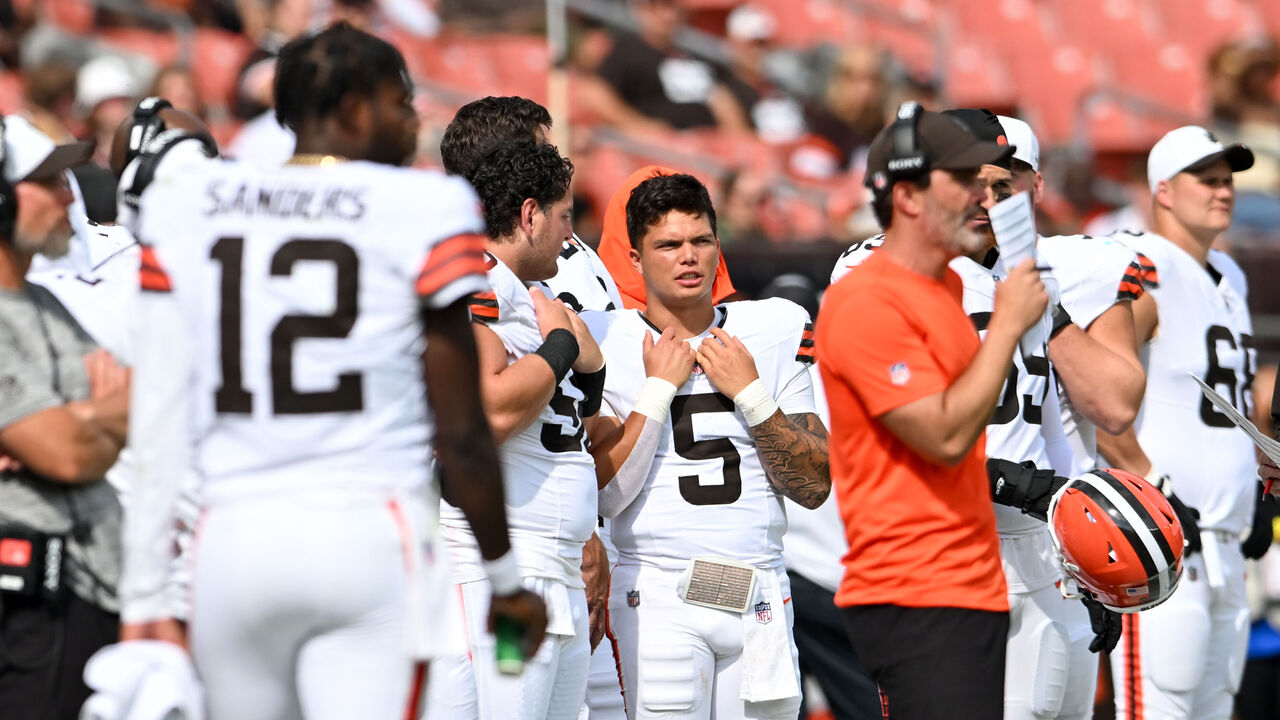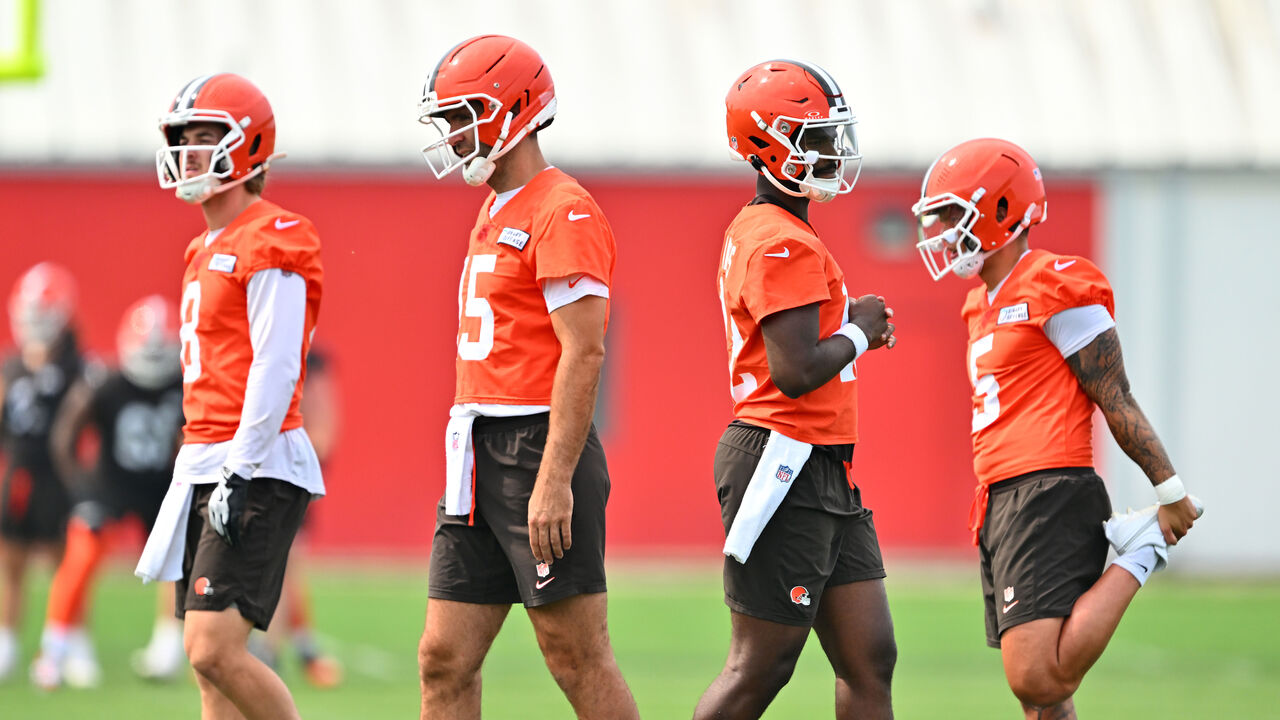Sink or swim: Browns need to let Shedeur play despite rough debut
From the moment the Cleveland Browns drafted Shedeur Sanders, it seemed like head coach Kevin Stefanski wished they hadn't.
The former Colorado star and son of Hall of Famer Deion Sanders suffered a remarkable draft free fall, only to be buried on the depth chart and kept away from the first-team offense in training camp like he was toxic.
Stefanski signaled that two veterans, Kenny Pickett and Joe Flacco, held the keys to Cleveland's offense. And if any rookie was going to get first-team work, it would be Dillon Gabriel, taken out of Oregon two rounds earlier than Sanders.
The plan made some sense: Sanders has a high profile, but there would be less clamour to play him if the coach kept him at arm's length. One way to avoid a Sanders-related quarterback controversy is to act as though you don't know why he's on your team.
But the risk inherent in that strategy smacked the Browns in the face on Sunday. With the veteran quarterbacks long since traded and Sanders elevated to the backup role by default, Gabriel suffered a head injury against the Baltimore Ravens.

Sanders made his NFL debut to start the second half. It didn't go well. The numbers are jump-scare frightening: four completions on 16 attempts for 47 yards, one interception, and two sacks. A passer rating of 13.5. A QBR, on a scale of 100, of 2.4. Hide your children!
As bad as the statistics are, they don't quite tell the story. Sanders looked completely unprepared to read a blitz or respond to pressure. He was hesitant and jittery. He repeatedly went backwards, giving up chunks of yardage. And the contest turned on an intentional grounding penalty that backed up the Cleveland punter and gave Baltimore excellent field position for its game-winning drive. The Browns fans who had cheered excitedly when Sanders entered the contest were by this point giving off a be-careful-what-you-wish-for vibe.
Cleveland had a six-point lead when Sanders took over, and, truly, it might have hung on if it had stuck to running plays with him under centre. Things were that grim. Worse, Sanders seemed surprised it had gone so poorly, which is perhaps understandable given he said weeks ago that he was "ready to play." However, it suggests he had no idea how unprepared he was - and is - to face NFL defenses.
The aftermath has raised questions about whether Sanders was being set up to fail - an exaggerated claim, since no team actively tries to sabotage a player. Still, Stefanski and the Browns deserve criticism for not putting Sanders in a position to succeed, especially when he's been the backup for weeks and just one Gabriel injury away from taking the field. If he was the long-term developmental project that the Browns indicated in training camp, why leave him in the next-man-up position while he was still a stranger to the first-team offense? More to the point, if you don't want Sanders to be your quarterback, why put him in a role where it's quite possible he'll end up being your quarterback?
The whole thing would be utterly baffling if not for the fact that these are the Browns, an organization with a history of strange quarterback choices.

So, what now? Gabriel, having entered the league's concussion protocol, is unlikely to be ready to play Sunday against the Las Vegas Raiders. That means Sanders would get the start, and we'll see if a few days of practice can make a significant difference in his ability to perform on an NFL field.
Despite all of Stefanski's apparent efforts to avoid this scenario, he now finds himself stuck with Sanders. Given the situation, he might as well let Sanders have a run as the starter. If nothing else, it would give the kid an opportunity to show whether he has the potential to be an NFL starter - something widely believed at this time last year, when Sanders was finishing his college career.
More likely, it would reveal that Sanders isn't ready for that kind of role, providing a clear sign the Browns will be in the market again for a quarterback in April.
The Sanders draft slide and the controversy it caused created a situation in which many people are oddly invested in his success or failure. Giving him some real playing time would at least allow Cleveland to reach a decision: Sanders proves that the Browns should've given him a chance earlier, or he shows that Stefanski was correct to have reservations.
What it won't answer is why the Browns drafted a player whom they have since gone to great lengths not to prepare to play quarterback in the NFL. Only Stefanski and his bosses know the answer to that one.
Scott Stinson is a contributing writer for theScore.